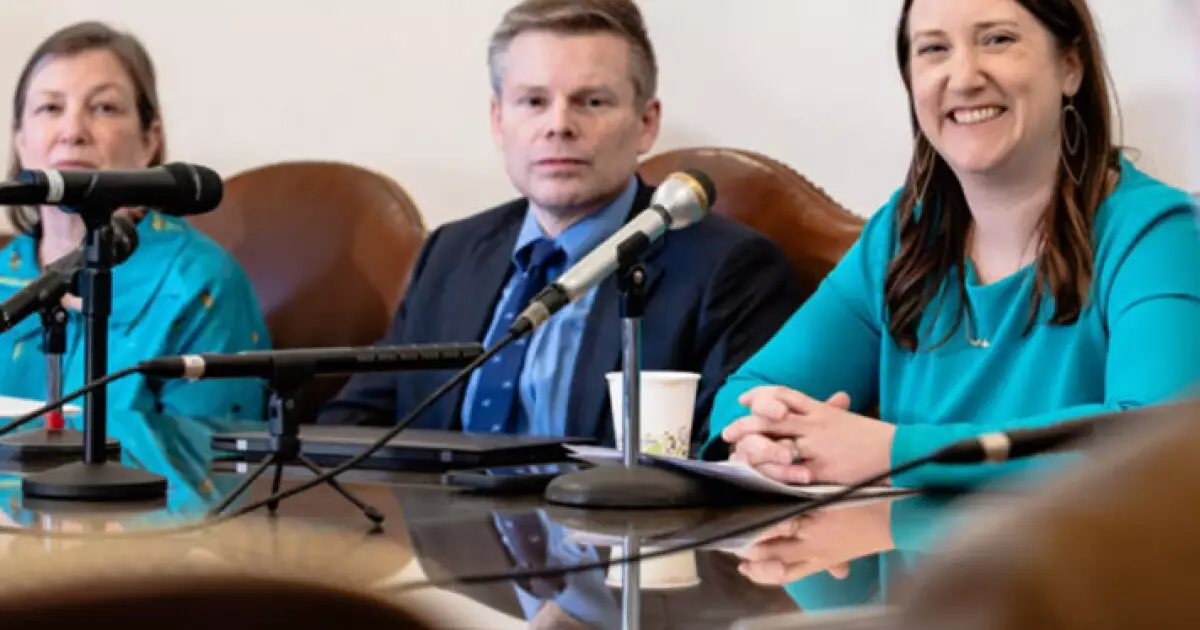In a deeply divided and contentious atmosphere, Washington State lawmakers have rolled out a staggering $77.9 billion budget that not only represents an increase in spending but also subjects residents to a heavy burden of new taxes. Expected to generate $8.7 billion in tax hikes over four years and impose $5.9 billion in program cuts, this budget overhaul has sparked furious debates and will undoubtably reshape the state’s fiscal landscape. The idea that taxpayers can continually bear such economic strain is concerning, especially in light of a $16 billion deficit that follows a rise in revenue forecasts and impending cuts in federal funding.
Tax Increases: An Unwelcome Reality
This budget’s centerpiece is an array of tax increases that are being hailed by some lawmakers as a necessary evil to properly fund education, housing, and natural resources. However, critics are right to express their dissent, as these “necessary evils” translate to an ever-growing financial burden for Washington residents. An increase in the gas tax by six cents a gallon and a levy on electric vehicle owners, especially the affluent Tesla drivers, highlights the flawed priorities of Democrats in power. Are they punishing success and innovation while merely addressing a fiscal shortfall? This calculated approach to taxation raises the question: where will it end?
The Impact of Program Cuts
Despite the grand vision of improved education and housing, this budget will also usher in painful cuts to critical social programs like drug rehabilitation and child support. While the proposal to protect the rainy-day fund sounds noble, the underlying reality is that it sacrifices immediate support for the most vulnerable among us. Lawmakers tout their priorities in education funding, yet even here, many feel they could have done more, particularly regarding special education services. By juxtaposing increased education spending with deep social service cuts, lawmakers showcase a skewed approach to state welfare that is steeped in rhetoric but lacking in sensitivity.
Amidst Unrealistic Assumptions
There have been commendable steps in reconsidering revenue growth assumptions—moving away from an optimistic 4.5% annual increase—but many fail to consider shifting the responsibility entirely onto the shoulders of taxpayers. Rep. Travis Couture’s remarks about the “largest tax increases in history” resonate deeply, especially as the true cost of governance begins to materialize in the lives of average citizens. Ignoring the potential consequences of such aggressive tax policies can lead to a vicious cycle where taxpayers feel trapped, forcing them to tighten their belts while the government flourishes unhindered.
A Compromise that May Backfire
Gov. Bob Ferguson’s measured praise of the budget might mask deeper rifts between lawmakers and their constituents. Despite commendable budget-saving measures and efforts to streamline spending, the reluctance to fully endorse various components sends a sobering message. The lack of a cohesive funding source that does not hinge on excessive taxation raises concerns about the longevity of these proposals. If anything, it hints at a government that prefers temporary solutions over more sustainable long-term strategies. The constant oscillation between tax increases and program cuts tends not only to frustrate constituents but also to foster an environment where trust in governance erodes.
The Cost of Inaction
This budgetary saga brings to light the fundamental issue—an imminent cost of inaction that plagues the state. Lawmakers who argue for their ability to effectively manage state affairs have instead opted for solutions grounded in short-term fixes. The fact that the wealth tax, which would have surely led to further legal challenges, was omitted is a clear indicator that they forwent more creative strategies in favor of taxing already beleaguered residents. As discussions continue about potential changes to the wealth tax, it is essential to remind ourselves that economic growth should not be throttled by government policies that quash ingenuity.
A Call to Action for Taxpayers
Ultimately, this budget stands as a cautionary tale for taxpayers and lawmakers alike. Citizens must remain vigilant, actively challenging the decisions made in their name. An electorate that fails to hold its representatives accountable risks becoming ensnared in a cycle of unchecked taxation and dwindling services. Just because there seems to be a panacea for the state’s budgetary strife, it doesn’t mean it is a solution that works for everyone. The implications of this budget will linger long after the ink dries, but it is incumbent upon the voting populace to ensure it has a say in future fiscal policies that directly affect their lives.

